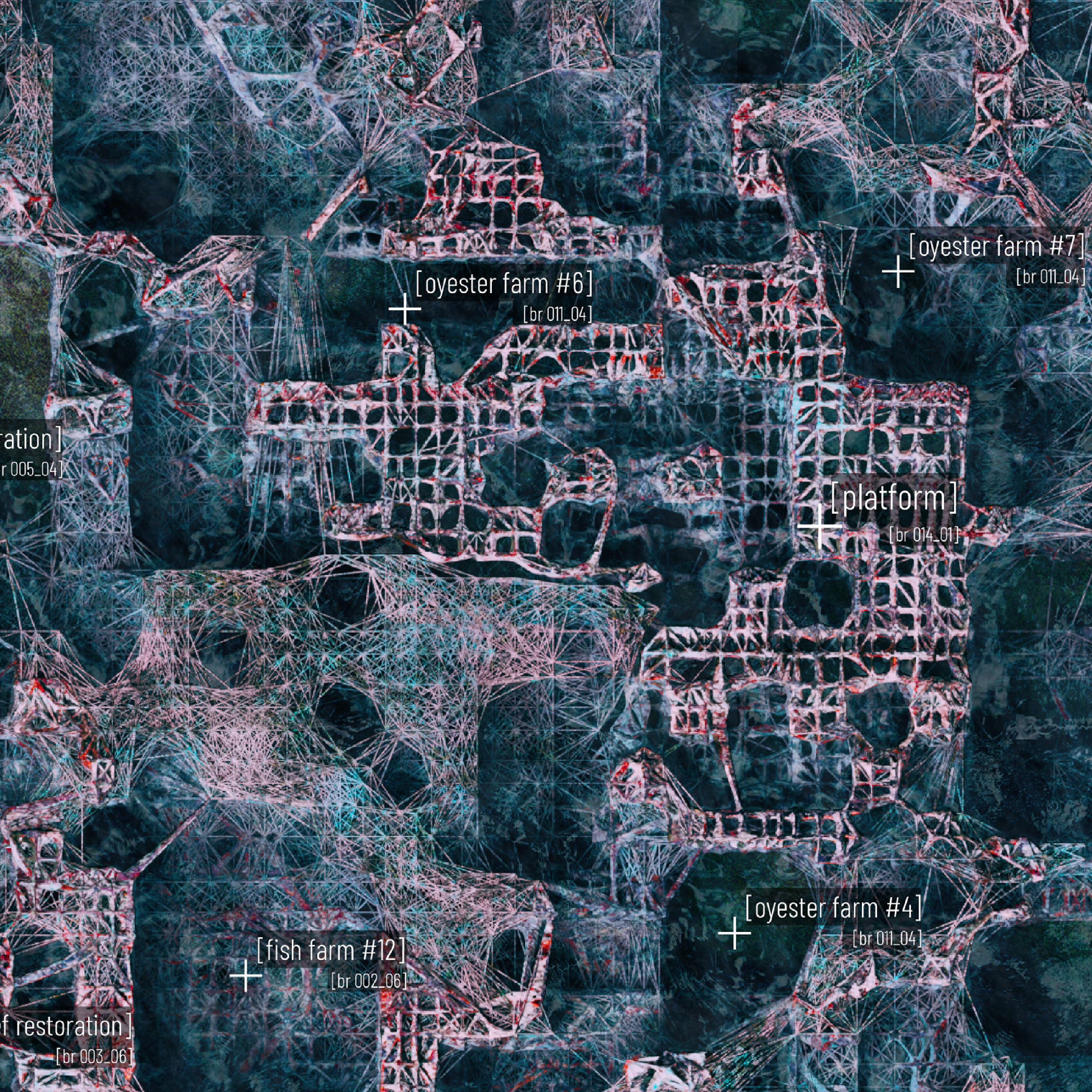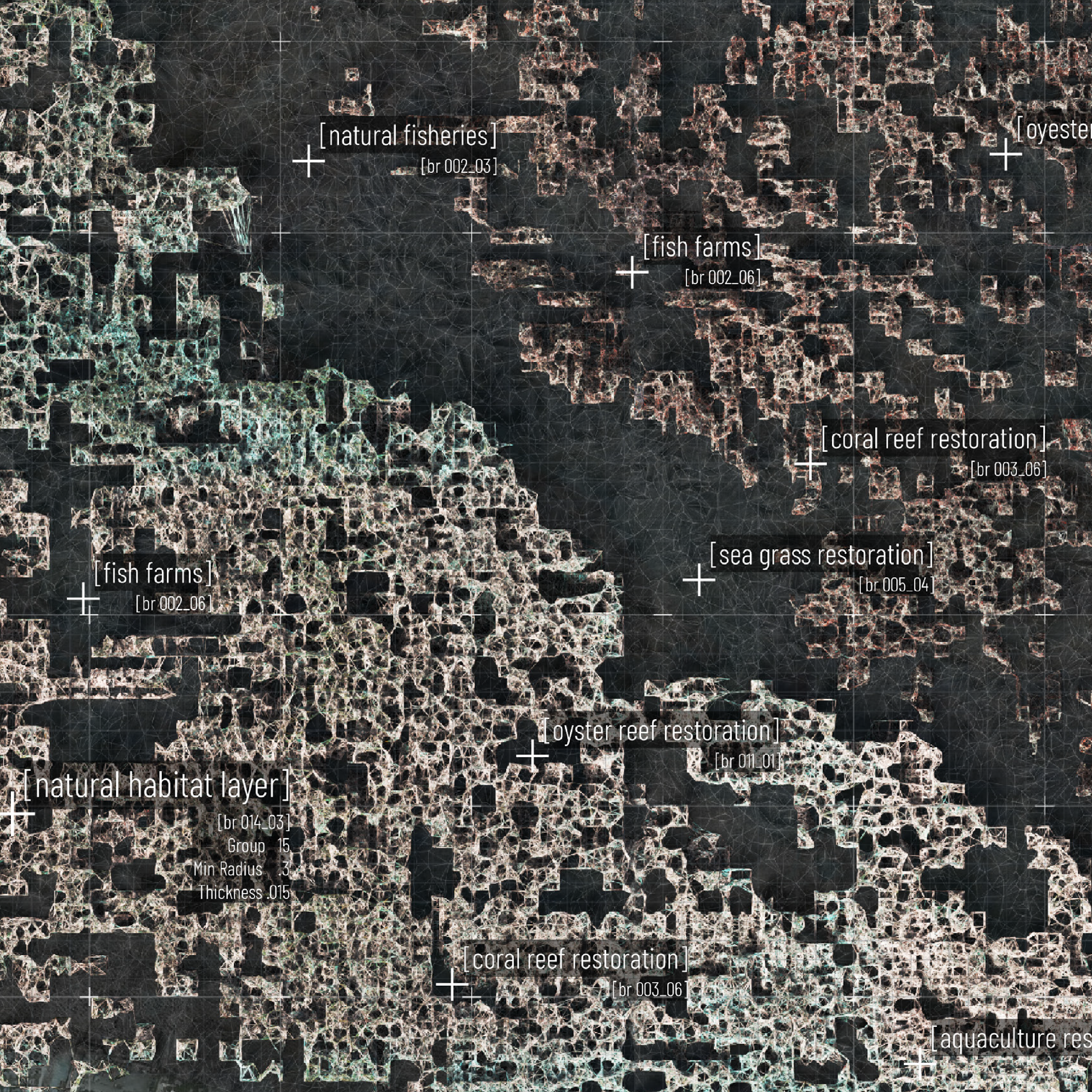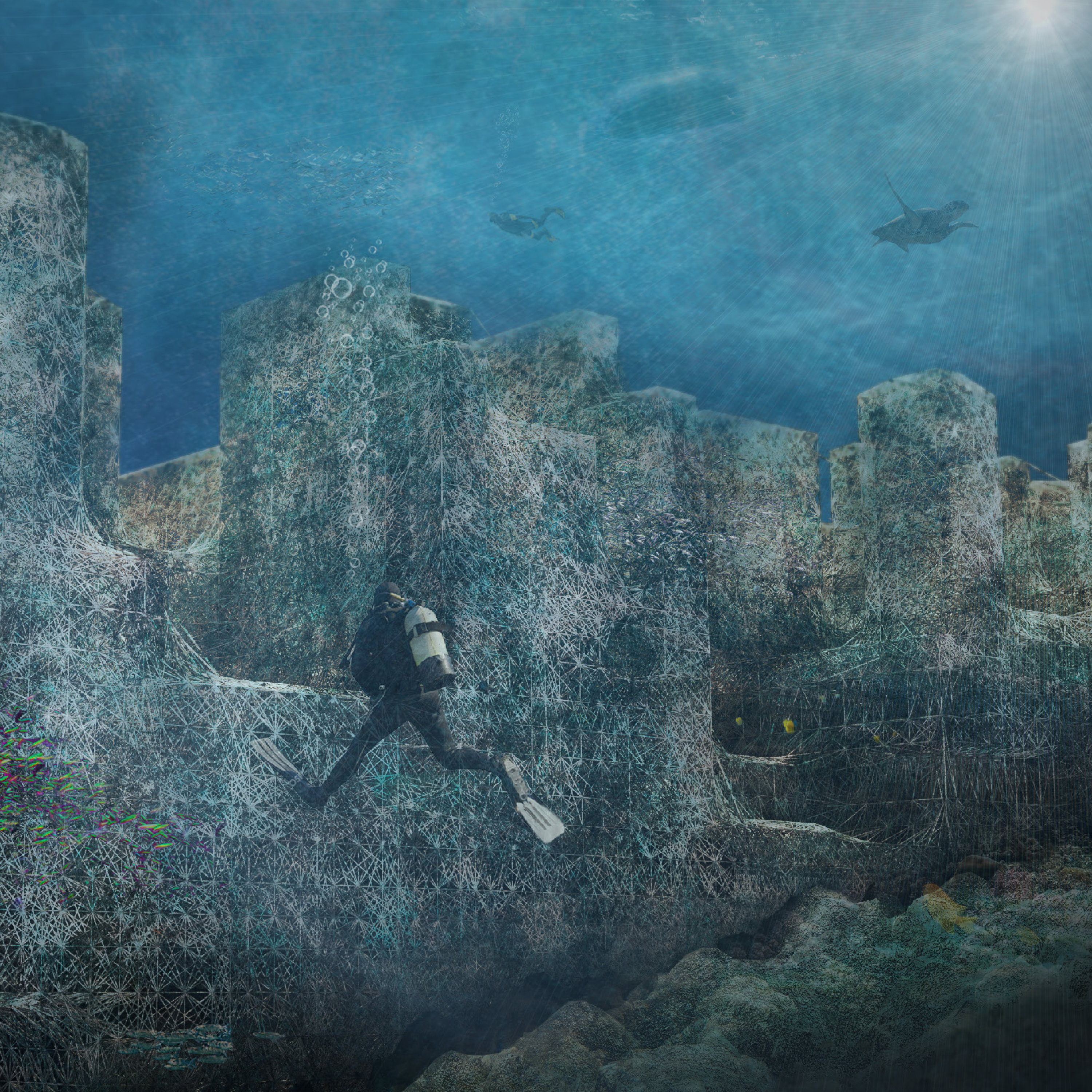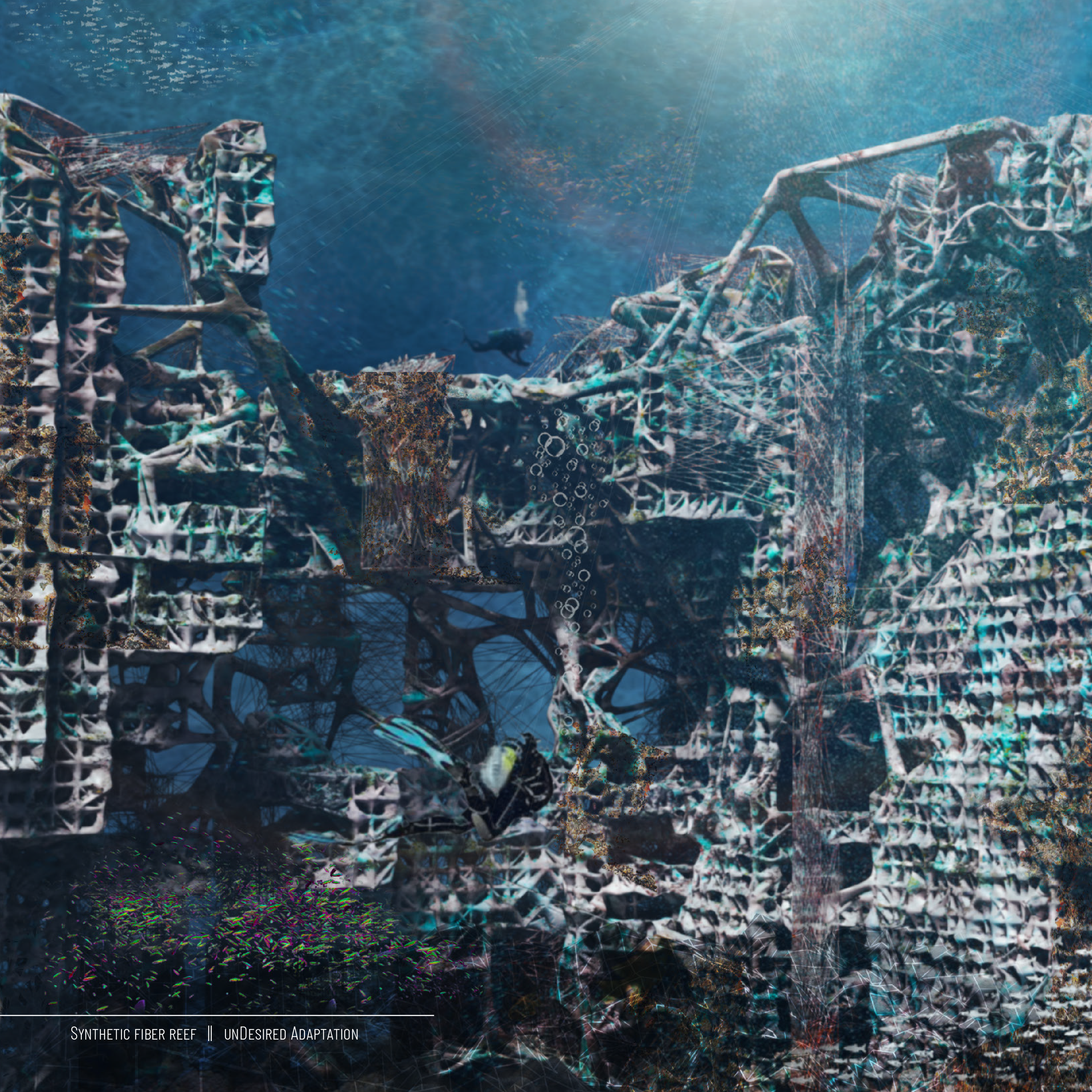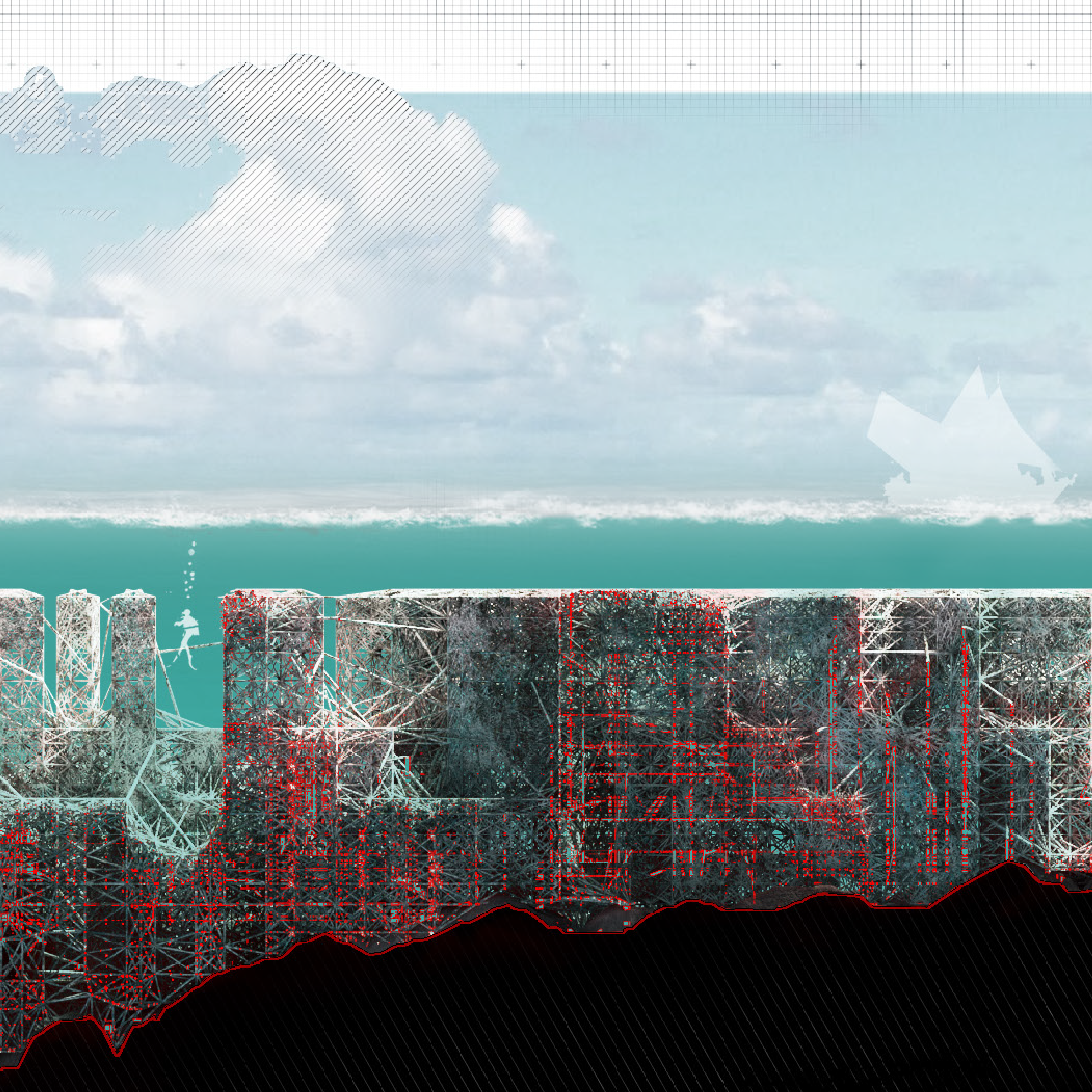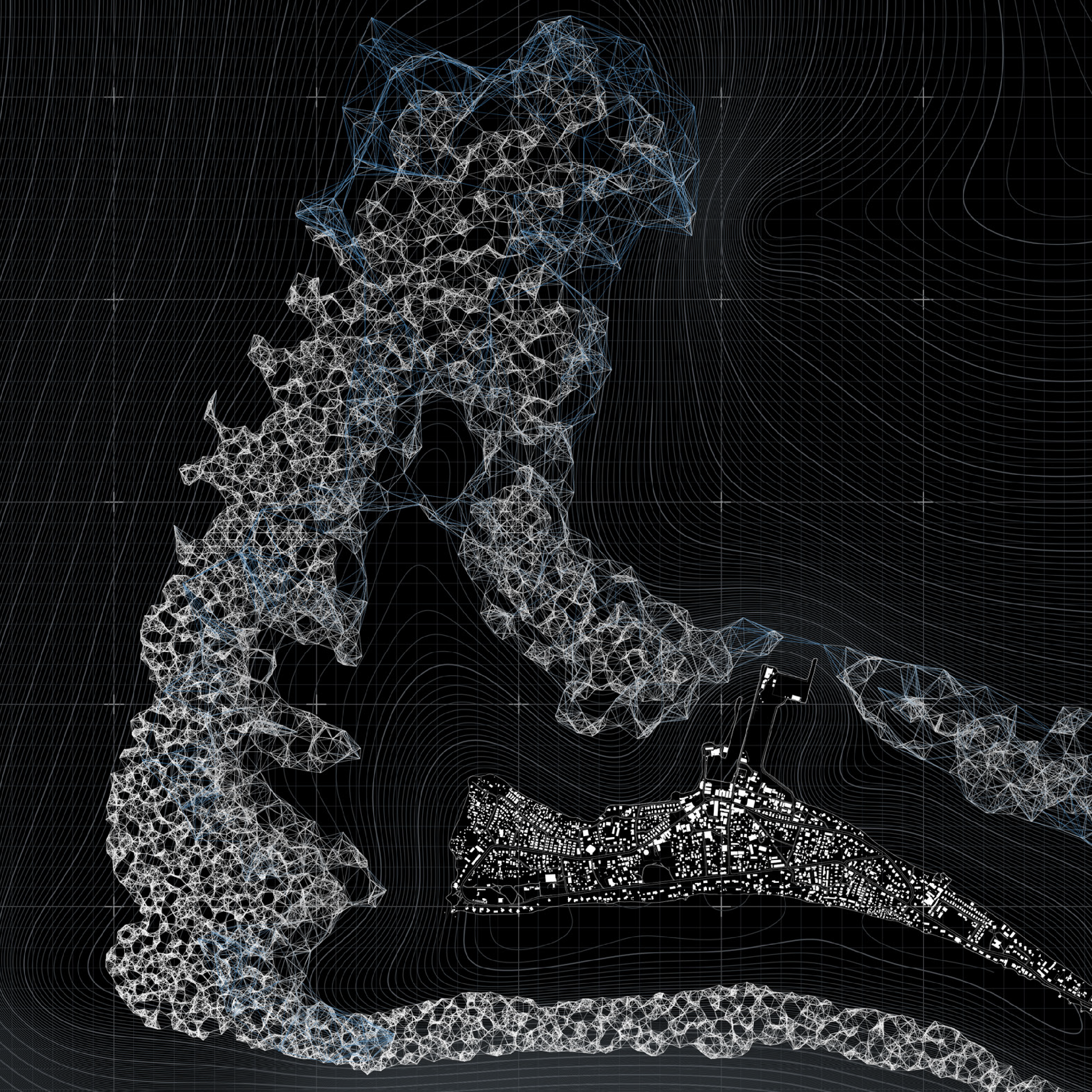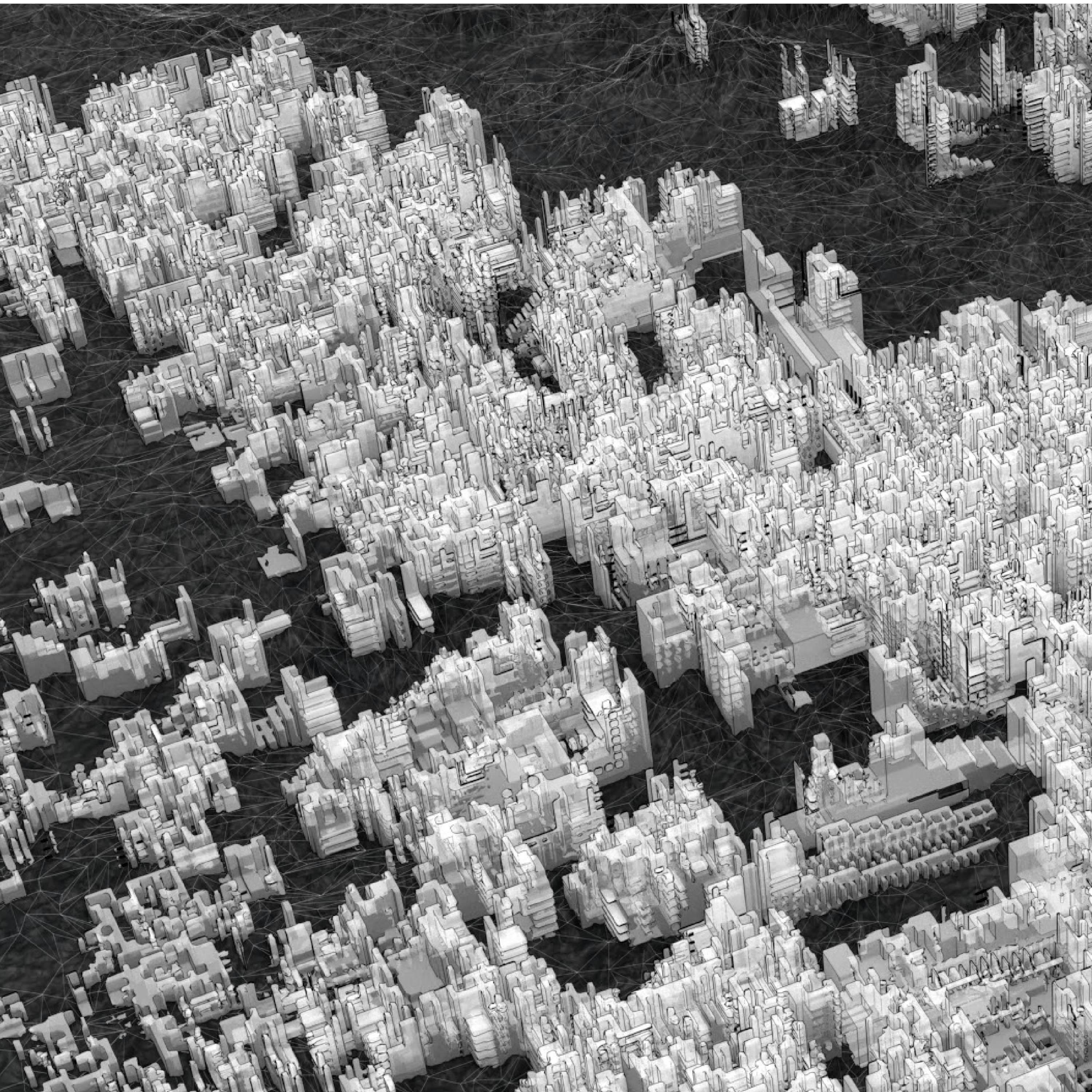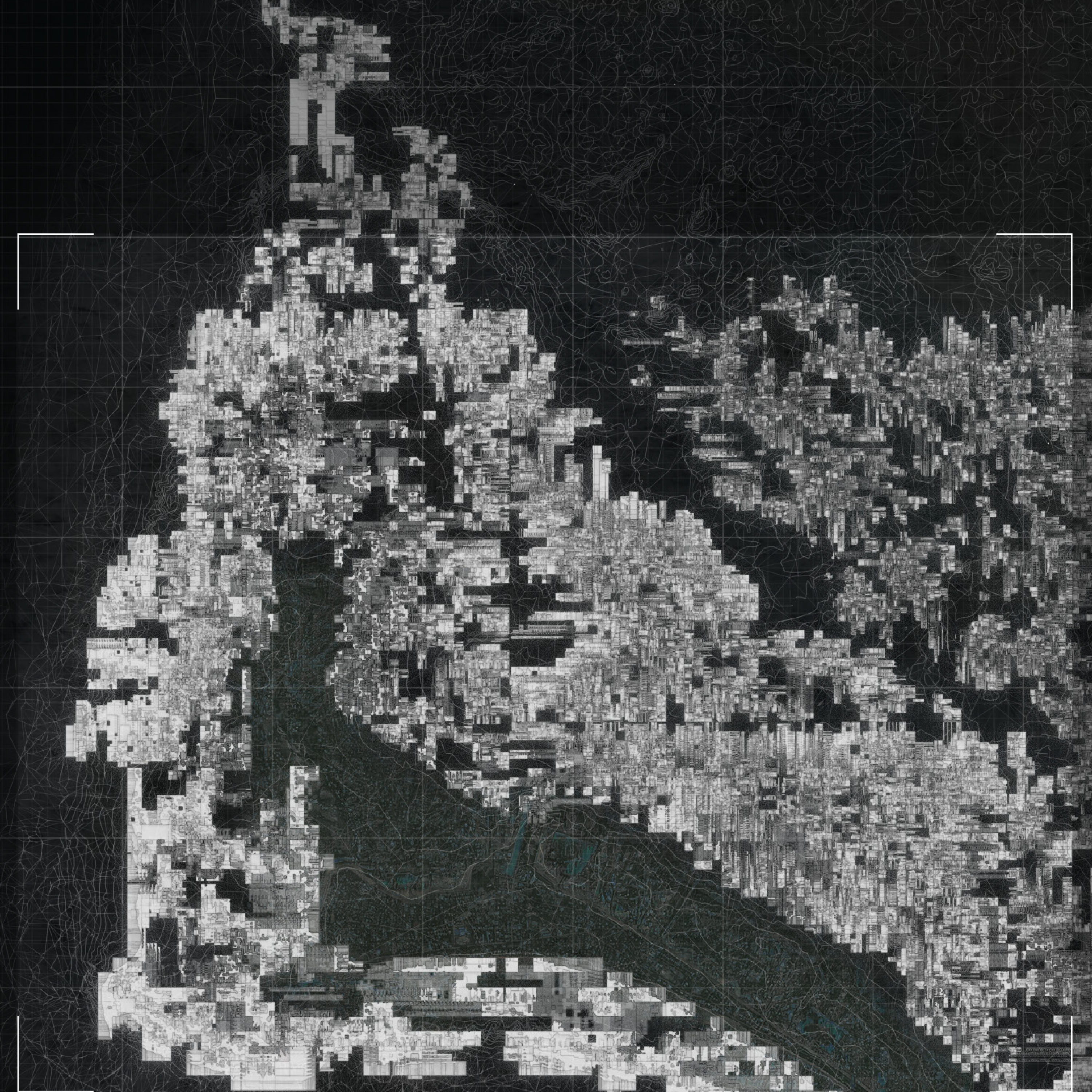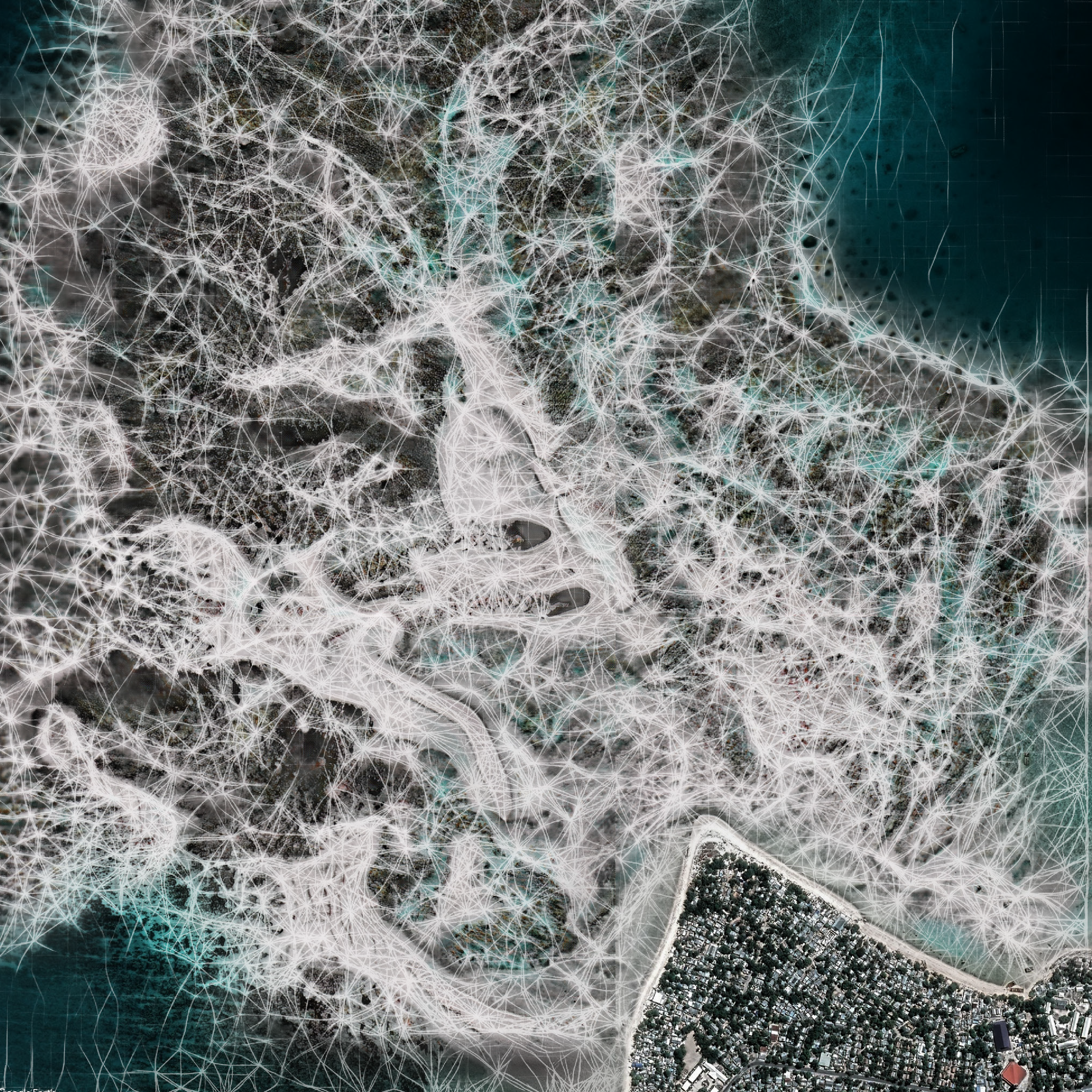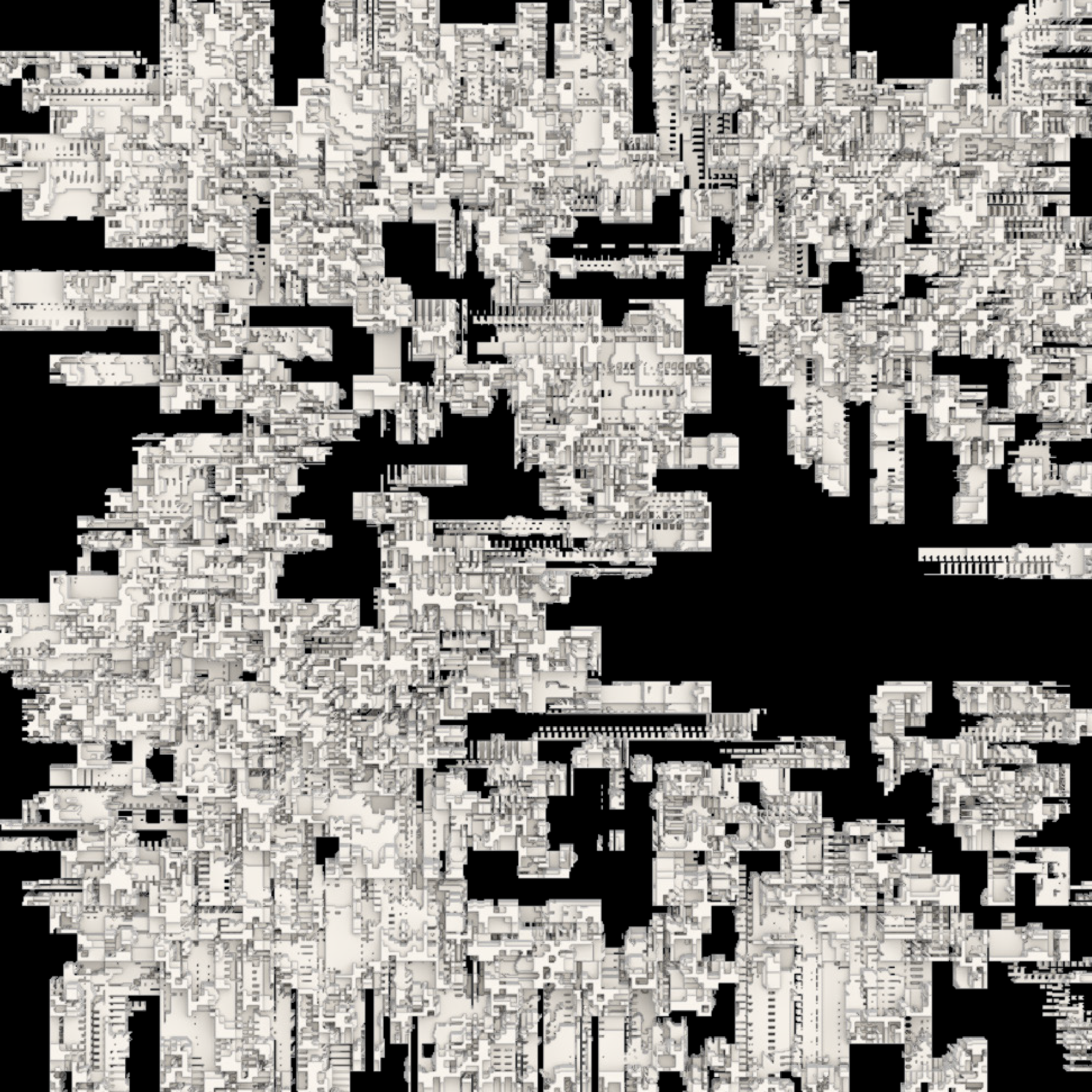unDesired Adaptation
Master Thesis by Miroslav Ivan
Synthetic Landscape Lab January 2021
Supervision by
Univ.-Prof. Dr. Claudia Pasquero, Dipl. Eng., MA AA
Maria Kuptsova, MArch
This master thesis project focuses on solving issues in low altitude areas caused by global warming while creating new and preserving the existing natural habitats. At the same time maintaining overall sustainability and even improving the social and economic conditions of the region. It does so by creating a synthetic fibre reef structure naturally “grown” with BiorockTM technology, presenting it with exceptional ecological and economic benefits. The design is driven by symbiosis of utilizing the specific Biorock qualities combined with enhancing these through artificial intelligence (machine learning) based composition. For the case study one of the most populated and prolific victims of climate change in the central Pacific Ocean was chosen, the volcanic atoll of Tarawa, Kiribati.
The newly created synthetic landscape, mapped with its respective functions, is translated into 3-dimensional space. The artificial intelligence-based design technique allows for a precise translation of the previously added material qualities. The translation is controlled by various parameters to reflect the physical attributes and density concept of each material and even amplify these in the process. Because of this precision the efficiency of the functions is greatly improved. Stage 2 shows the translation of the island and the development in gaining back and creating new land mass and further extending the city once the erosion stops.
The synthetic fiber reef is generated from the 3-dimensional translation of the Biorock landscape, which already incorporates all specific qualities of each base material used.










